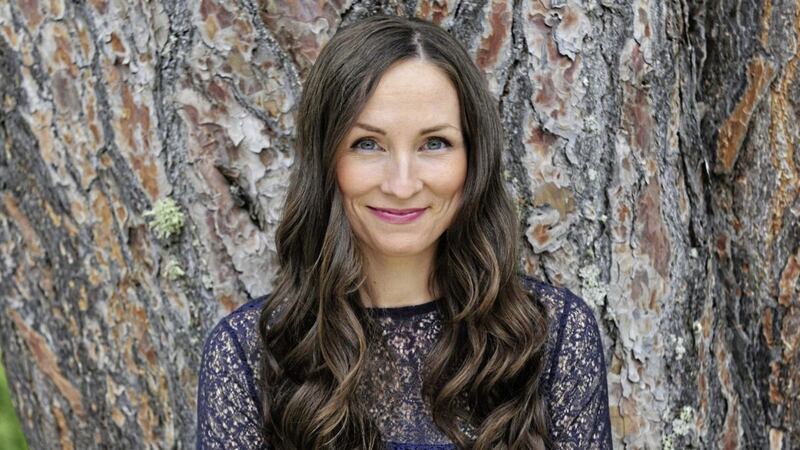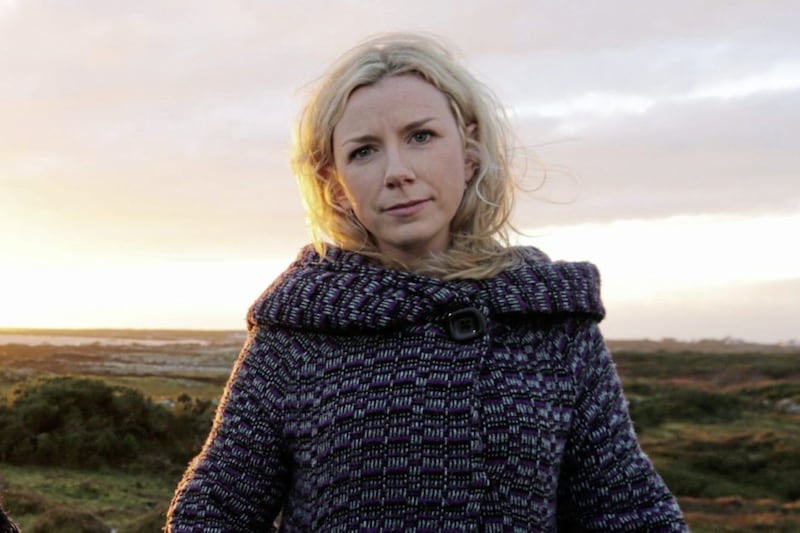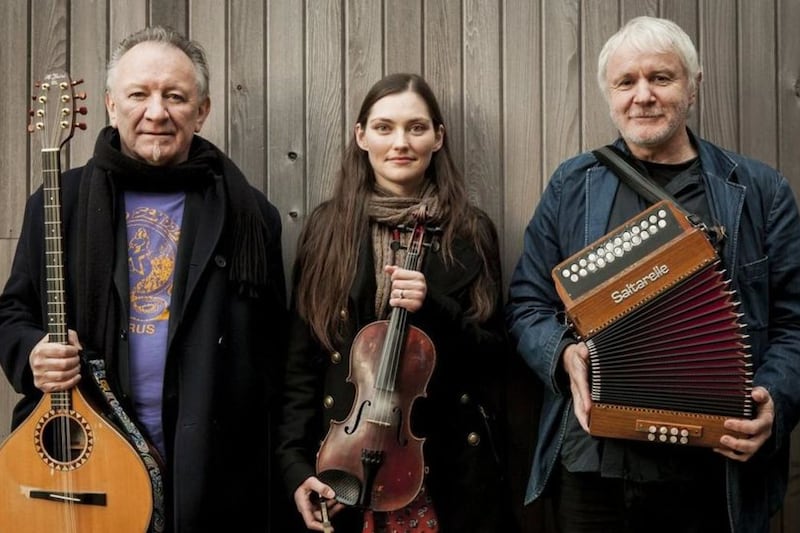IT’S a topsy-turvy life for one of Gaeldom’s finest singers, Julie Fowlis who was last seen on these shores co-hosting the BBC Radio 2 Folk Awards with Mark Radcliffe.
It’s a career that has seen her play in places such as Moidart, Oban and Stornaway to theatres in Paris and Vienna, London and New York. She’s even sung in a Disney/Pixar movie, adding her vocal talents to two songs, Touch the Sky and Into The Open Air in the Oscar-winning Brave. ("Tonight, Matthew, I shall be Princess Merida!")
Add to that the music the plays with husband and Déise musician Éamonn Doorley and the TV series Port which shows the musical bond of friendship between herself and Kerry singer Muireann Nic Amhlaoibh, which echoes the cultural and linguistic connections between our two countries.
Julie certainly hopes that the Folk Awards will awaken people who don’t normally connect with folk or trad music to its many joys.
"It was such a fantastic night," says Julie, who is no stranger to the event having won the Horizon award in 2006 and been nominated for Folk Singer of the year twice, winning it in 2008.
"The event gives performers a great opportunity to showcase their music and to be heard and it's no mean feat pulling things like that off, and to have people pay attention to what's happening in the very vibrant world of trad music."
However, being a folk superstar who sings in Scottish Gaelic doesn’t limit who Julie shares a stage with – she’ll be singing at the BBC's Biggest Weekend in Perth on May 26 with Simple Minds, Emili Sandé and Noel Gallagher’s High Flying Birds – or what Juie listens to.
She explains that being a folk singer is like being part of a big global family:
"I dip in and out of music from all different genres and styles. I definitely love folk and trad – and 'folk' is very loosely termed: folk from Scandinavia, Bulgaria and the northern regions of Spain particularly, and France. I love all of that, and I listen to a lot of female singers and songwriters.
"I also like harking back to that special time in the 60s when there was a big shift in music. A lot of the messages in those songs hold through now as much as they did then."
Julie has also begun recording songs in English with two on the new album, Alterum, as well as a beautiful song called Camariñas sung in Galician.
"People have been harking on at me to sing in English for 15 years and I've never listened to anybody," she admits.
"I never had anything against singing in English, I just never felt really strongly about singing any material in it. In Scotland, Gaelic speakers don't have the same tradition of singing in English as you do in Ireland so there's not the same connection, I don't feel. They feel like two separate traditions.
"At the same time, we must never be scared to reach out a hand to other cultures and languages. Whether you're singing in English or singing in Galician or Gaelic, the older I get, I see we're all singing the same song really.
"It's the same things that move us no matter that background or religion you're from, it's all the same as a human being. You can equally sing about what you love and what you believe in, but at the same time you can reach out a hand to others that are a bit different."
Alterum was first conceived as an album of songs about different legends and creatures from the Gaelic otherworld but, as the album went on, it became more about another otherworld as Julie explains – with the help of a dead barn owl.
"As a Gaelic speaker I'm raising my children speaking Gaelic, people can sometimes make you feel like you're quite exotic by doing that in Scotland when this is where the language has been for a thousand years and more.
"It's quite a funny situation to find yourself in. That got me thinking of how we all inhabit different worlds in our lives everyday – socially, culturally, linguistically."
These were ideas that Craig Mackay, who made the head-dress on the album cover, also wanted to tap into.
"Craig had found a dead owl at the side of the road. He managed to salvage the feathers and fashioned a head-dress, which is kind of an association with an older, more traditional time. And feathers are symbolic of the otherworld, but it's also the idea of finding these old things and reimagining them, not allowing them to sit and rot."
Julie is not one to rest on her laurels: she has personal and musical ambitions to fulfil. This year, she is working on a few big commissions with one, Iolaire, already announced (see Juliefowlis.com/frontpage-article/january-news for details) and others on the way.
And then there is the TV work, the live gigs – and looking after two daughters aged six and four.
With the life/work balance of female musicians making headlines, Julie certainly goes along with the idea that more could be done to improve the lot of women performers – with a caveat or two.
"Obviously in general terms I do go along with that although I think it's a very complex issue," she tells me.
"I'd like to see change come in an organic way and looking at the roots – encouraging young girls to learn their first instrument but then to encourage them to keep playing and keep performing. It's something that will take time and it's about positive role models."
She adds: "And programming women just for the sake of it, and the 50/50 thing, could be dangerous. I would hate to think that I've been chosen just to tick a box.
"It's for standards and it's for opportunity, we all collectively – I don't think it's just a woman's responsibility – have to be open and kind and allow opportunities for all musicians.
"It can't just be a male/female thing because there are many other issues bubbling under the surface and I think we should work towards opportunity for all.
"There are other camps which don't get an opportunity too and one of those camps is disabled musicians.
"I have a parent who is registered disabled and friends who are wheelchair-bound and life is very difficult for them and much for difficult than generally for females working in the industry.
"So I always think it's important for people to remember that there are others who are quite worse-off than ourselves. You have to look at everybody who's trying to make a living in music."
Highlights of the BBC2 Folk Awards can be seen on BBC Two Northern Ireland on Sunday April 8 at 5.30pm and via BBC iPlayer after that.






